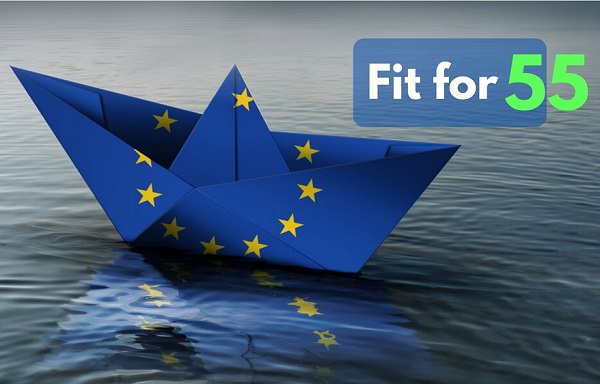Calls of the climatic agenda and competitive advantages of national electric power were discussed by participants in the energy forum Prospects for the development of Russian energy in conditions of European carbon regulation. The event was held on November 10, 2021 as part of the weeks of Russian business, which is held by the Russian Union of Industrialists and Entrepreneurs
Donasting carbon regulation in the Russian Federation should be carried out after approving the European package Fit for 55

Calls of the climatic agenda and competitive advantages of national electric power were discussed by participants in the energy forum Prospects for the development of Russian energy in conditions of European carbon regulation. The event was held on November 10, 2021 as part of the weeks of Russian business, which is held by the Russian Union of Industrialists and Entrepreneurs.
“Emissions from2 Electrogeeneration in the Russian Federation is lower than in industrialized countries in Europe and the USA. Today, the Russian export-oriented industry can use the potential of low-carbon electric power industry (nuclear power plants, hydroelectric power stations, PSU thermal generation) to increase competitiveness, ”said Dmitry Vologzhanin, director of the Energy Council Association.
He noted that the countries of the European Union implemented a consistent policy to decarbonize the economy over the past 16 years. Thus, the formation of the European quota trade system for greenhouse gas emissions began in 2005 and included four phases, each of which was accompanied by an analysis of influence on the economy with the subsequent introduction of new requirements and restrictions.
In turn, attempts by an “aggressive energy transition” in the Russian Federation actually jeopardize both the economy and the life of the country's population.
Recall that foreign colleagues failed to level the difficulties of the energy transfer that has arisen. So, in February 2021, due to abnormal frosts, the Texas energy system could not cover increased demand for electricity, including due to non-working solar power plants (SES) and wind farms (WES). As a result, the price of electricity increased by 300 times – to $ 9,000 per MWh.
On the European Energy Council Nord Pool, the price increased by 69% – to 250 euros/MW • h. In October, at Nord Pool, electricity prices amounted to about 300 euros per 1 MW • hour, which exceeds the same prices in Russia by 10 times. At the same time, in the Russian Federation, the price of the wholesale market of electric energy and power in January – August 2021 increased by only 3.7%.
Of course, it is necessary to take into account the calls of the climatic agenda. At the same time, the implementation of the energy transfer should be carried out smoothly without damaging the Russian economy.In addition, it is necessary to concentrate at measures to increase the energy efficiency of the domestic economy.
A particularly important point will be to defend at the state level of international recognition of low -carbon production of nuclear power plants, large hydroelectric power stations, as well as cogeneration plants and PSU.
It is important to achieve recognition at the international level of methodological instructions on calculating the absorption of forests, which, according to experts, is about 2.5 billion tons of carbon dioxide equivalent per year, as well as methodological instructions for calculating the volume of indirect emissions of greenhouse gases.
Thus, the bonnet of carbon regulation in the territory of the Russian Federation should be carried out after the final approval of the European package “Fit for 55”, as well as the adoption of final decisions in Glasgow. At the same time, when forming a plan for the implementation of the strategy of low carbon development of the Russian Federation, it is necessary to maintain the competitive advantages of the national energy system.




